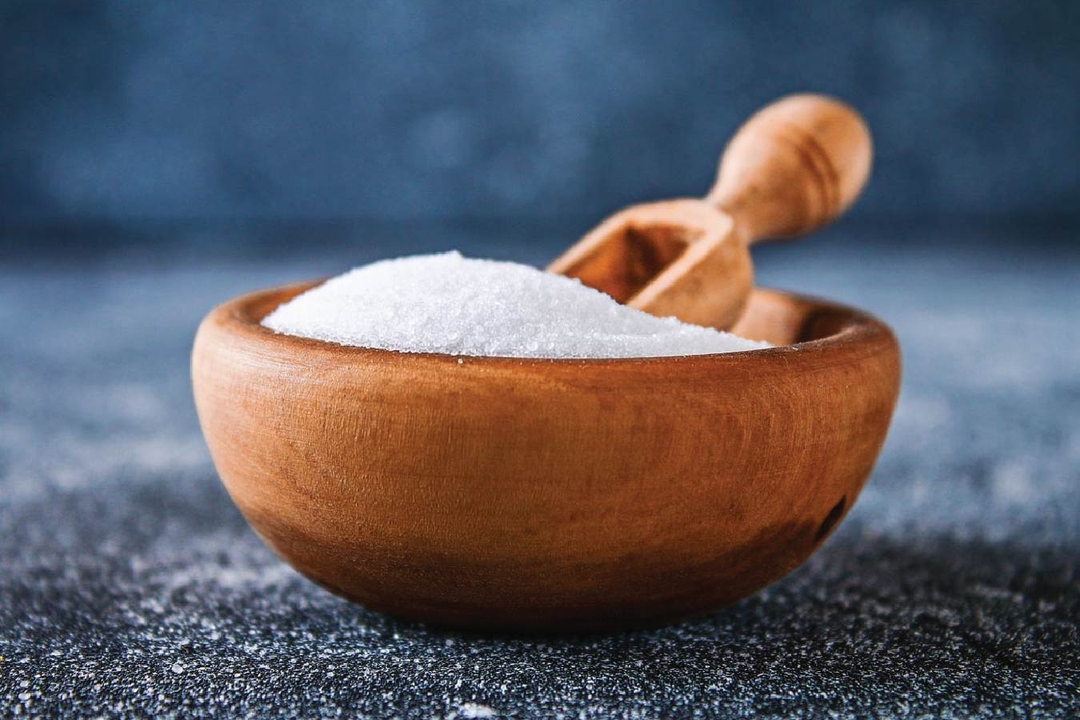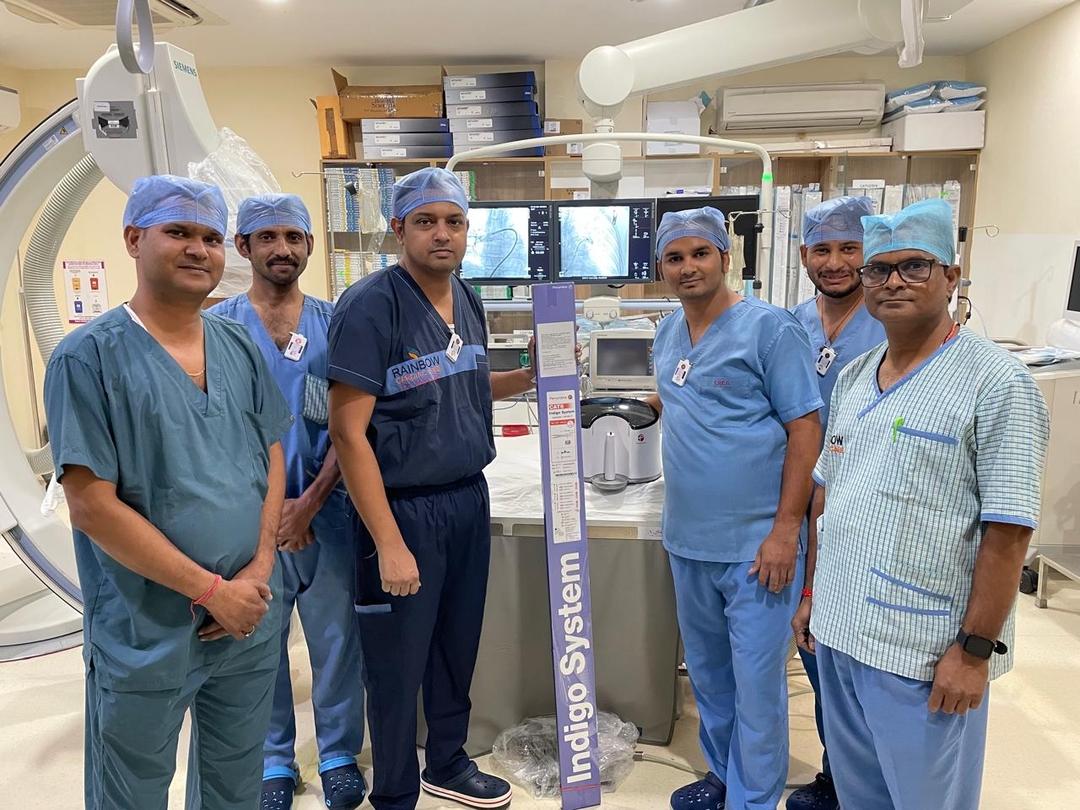
Iodine: Small but Mighty
By Priyambda Sahay
Reviewed by : Ujala Cygnus
Does your child show signs of reduced attention, difficulty concentrating, slow motor development, or learning challenges? While often mistaken for behavioral issues or ADHD, these symptoms can sometimes point to a hidden culprit: Iodine Deficiency.
Iodine is small but mighty. It is a vital micronutrient essential for human growth, brain development, and metabolism. Yet, despite its importance, iodine deficiency remains the leading cause of preventable intellectual disability worldwide.
Why is iodine essential for our health?
Iodine is very important for our health. Our thyroid needs iodine to make hormones that control your metabolism, energy, brain development, and heart rate. Without enough iodine, thyroids can't function properly. It is a vital micronutrient that plays an essential role in human growth, brain development, metabolism, and overall health. It is an important part of the thyroid hormones thyroxine (T4) and triiodothyronine (T3), which control metabolism and help babies and fetuses grow. Unfortunately, iodine deficiency remains one of the most widespread and preventable nutritional disorders in the world.
Iodine deficiency remains the leading cause of preventable intellectual disability worldwide. It affects people of all ages, but pregnant women, infants, and young children are most vulnerable. In India, despite nationwide salt iodisation efforts, millions of people are still at risk of iodine deficiency disorders (IDD). According to government data, over 200 million people are at risk of iodine deficiency. More than 71 million suffer from goiter and related disorders. Out of 325 surveyed districts, 263 are IDD-endemic. Around 350 million people still do not consume adequately iodised salt.
Iodine is found in foods like seaweed, seafood, fish, eggs, dairy products, iodised salt, breast milk, and fortified infant formula. After consumption, the body quickly absorbs iodide, the most common usable form, which the thyroid gland uses to produce hormones. Any excess iodide is safely removed through urine. Because the body cannot make iodine on its own, a consistent dietary intake is essential.
Understanding the importance of iodine, its health impact, and how to prevent deficiency is crucial for every individual and family. Let’s understand why iodine is so important for our body.
Dr. Jaspreet Singh, an expert endocrinologist at Ujala Cygnus JK Medicity Hospital, Jammu, explains why iodine is vital for the body and answers all the key questions you need to know.
What are the effects of iodine deficiency?
Iodine deficiency causes hypothyroidism. You feel exhausted, gain weight, unexpectedly feel constant cold, and experience brain fog. In children and during pregnancy, it can cause permanent brain damage and developmental problems.
Health Consequences of Iodine Deficiency
Iodine deficiency affects the body through inadequate production of thyroid hormones. The consequences range from mild to severe, and many are irreversible if not prevented early. During early pregnancy, the fetus depends entirely on the mother’s thyroid hormone supply. Maternal iodine needs to increase by 50% during pregnancy, making adequate intake essential.
Goiter and Hypothyroidism
When iodine intake drops below 10–20 mcg/day, the thyroid cannot produce sufficient hormones. To compensate, it enlarges, causing goiter, the earliest visible sign of IDD. This can occur in children and adults.
Risks for Pregnant Women and Fetuses
Iodine deficiency during pregnancy can cause:
Miscarriage and stillbirth
Severe neurodevelopmental delays
Growth retardation in the fetus
Irreversible brain damage
Cretinism (characterised by intellectual disability, deaf-mutism, spasticity, and physical abnormalities)
Effects on Infants and Children
Infants are highly sensitive to iodine levels because even small deficiencies can disrupt their TSH and T4 levels.
Even mild iodine deficiency in early life can lead to:
Lower IQ
Reduced attention and concentration
Slower motor development
Increased risk of ADHD
Learning difficulties
Impact on Adults
Adults with iodine deficiency may experience:
Goiter
Hypothyroidism
Fatigue and reduced mental productivity
Impaired work capacity
Increased risk of follicular thyroid cancer
How can we identify the signs of iodine deficiency?
The most common signs are neck swelling, unexplained weight gain, constant fatigue, dry skin, difficulty concentrating, irregular periods, and feeling unusually cold.
What diseases can occur due to iodine deficiency?
Untreated iodine deficiency leads to goiter, that is, swelling of the neck, hypothyroidism, stunted growth, and reduced intelligence in children, severe brain damage in newborns, infertility, and miscarriage.
What are common myths associated with the use of iodine in food?
Many people believe that all salts contain iodine, but here's the truth. Only iodised salt has iodine in it. Sea salt, kosher salt, or Himalayan pink salt do not contain iodine unless specifically labeled. Another myth is that processed foods protect us from iodine deficiency. The reality is that processed foods are mainly made with non-iodised salt.
Some people worry that iodine from seafood can cause allergies, but this is not true. Most seafood allergies are a reaction to proteins in the seafood, not to iodine itself. Finally, many think that iodine deficiency is a problem only in the poor, but studies show that even in big cities and high-income groups, mild to moderate iodine deficiency exists, especially in pregnant women and vegetarians who do not use iodised salt.
What treatments or measures are available to overcome iodine deficiency?
The simplest solution is to use iodised salt when cooking or at the table. Consuming less than 5 grams (approx. one teaspoon) of iodised salt daily provides the necessary iodine while keeping sodium levels safe. An adult requires 150 micrograms of iodine per day.
We should eat iodine-rich foods, especially seafood, shrimp, and tuna. If you are vegetarian, you can try dairy products like milk, cheese, and yogurt. If you are pregnant or contemplating pregnancy, meet and consult your doctor first.
So, the final thought is this tiny material, iodine, is crucial for your health, brain, weight, and fertility. Simple dietary changes can prevent deficiency and protect your life. So, if you are experiencing any symptoms like fatigue, weight gain, or neck swelling, visit your doctor.
A simple blood test can confirm iodine deficiency, and it is very treatable. Take care of your thyroid; it takes care of you. Your thyroid and your health will thank you for this step.
How to Prevent Iodine Deficiency?
The simplest and most reliable method to prevent IDD is using iodised salt for daily cooking. Check the packaging to ensure it meets the recommended iodine levels.
Follow Recommended Intake
Health organisations recommend:
150 mcg/day for adults
220–250 mcg/day for pregnant women
250–290 mcg/day for breastfeeding mothers
90–120 mcg/day for children
Supplements for Pregnant and Lactating Women
Pregnant and lactating women in India can ensure adequate iodine intake through a combination of consuming iodised salt and taking a daily supplement, typically containing 150 mcg/day of potassium iodide, especially if iodised salt coverage is inconsistent. The specific recommendation may vary based on local iodine deficiency levels.
Monitoring
People with thyroid disorders, pregnant women, and young children should consult healthcare providers to monitor iodine status as part of regular health check-ups.
Can Excess Iodine Be Harmful?
Yes, extremely high iodine intake can mimic iodine deficiency symptoms, including:
Goiter
Hypothyroidism
Hyperthyroidism
Thyroiditis
If you have any questions related to the use of iodine and its deficiency, you can consult a doctor at your nearest Ujala Cygnus Hospital or ask our health experts via email at askadoctor@ujalacygnus.com.
Loading...











